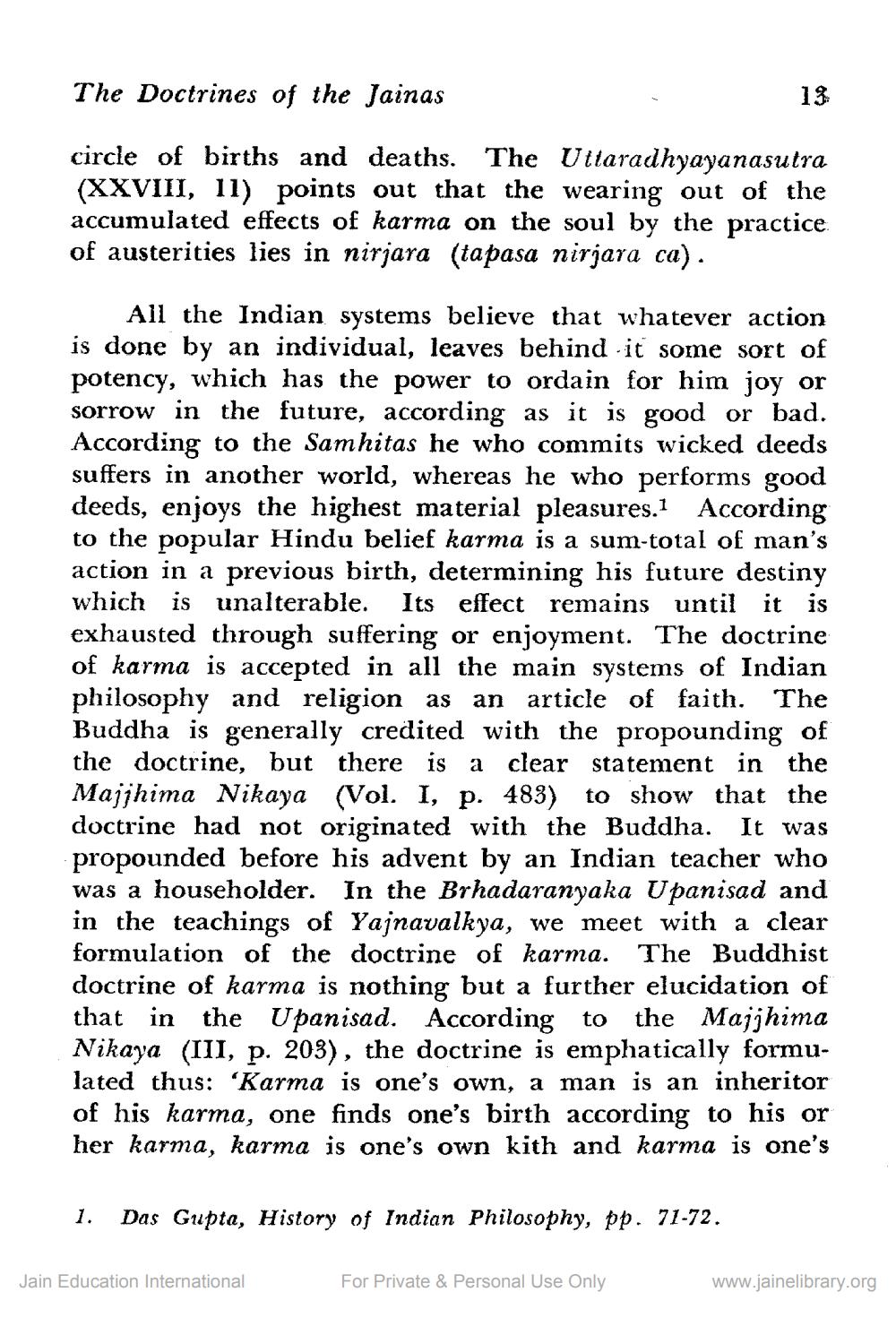________________
The Doctrines of the Jainas
13
circle of births and deaths. The Uttaradhyayanasutra (XXVIII, 11) points out that the wearing out of the accumulated effects of karma on the soul by the practice of austerities lies in nirjara (tapasa nirjara ca).
All the Indian systems believe that whatever action is done by an individual, leaves behind it some sort of potency, which has the power to ordain for him joy or sorrow in the future, according as it is good or bad. According to the Samhitas he who commits wicked deeds suffers in another world, whereas he who performs good deeds, enjoys the highest material pleasures. According to the popular Hindu belief karma is a sum-total of man's action in a previous birth, determining his future destiny which is unalterable. Its effect remains until it is exhausted through suffering or enjoyment. The doctrine of karma is accepted in all the main systems of Indian philosophy and religion as an article of faith. The Buddha is generally credited with the propounding of the doctrine, but there is a clear statement in the Majjhima Nikaya (Vol. I, p. 483) to show that the doctrine had not originated with the Buddha. It was propounded before his advent by an Indian teacher who was a householder. In the Brhadaranyaka Upanisad and in the teachings of Yajnavalkya, we meet with a clear formulation of the doctrine of karma. The Buddhist doctrine of karma is nothing but a further elucidation of that in the Upanisad. According to the Majjhima Nikaya (III, p. 203), the doctrine is emphatically formulated thus: 'Karma is one's own, a man is an inheritor of his karma, one finds one's birth according to his or her karma, karma is one's own kith and karma is one's
1. Das Gupta, History of Indian Philosophy, pp. 71-72.
Jain Education International
For Private & Personal Use Only
www.jainelibrary.org




